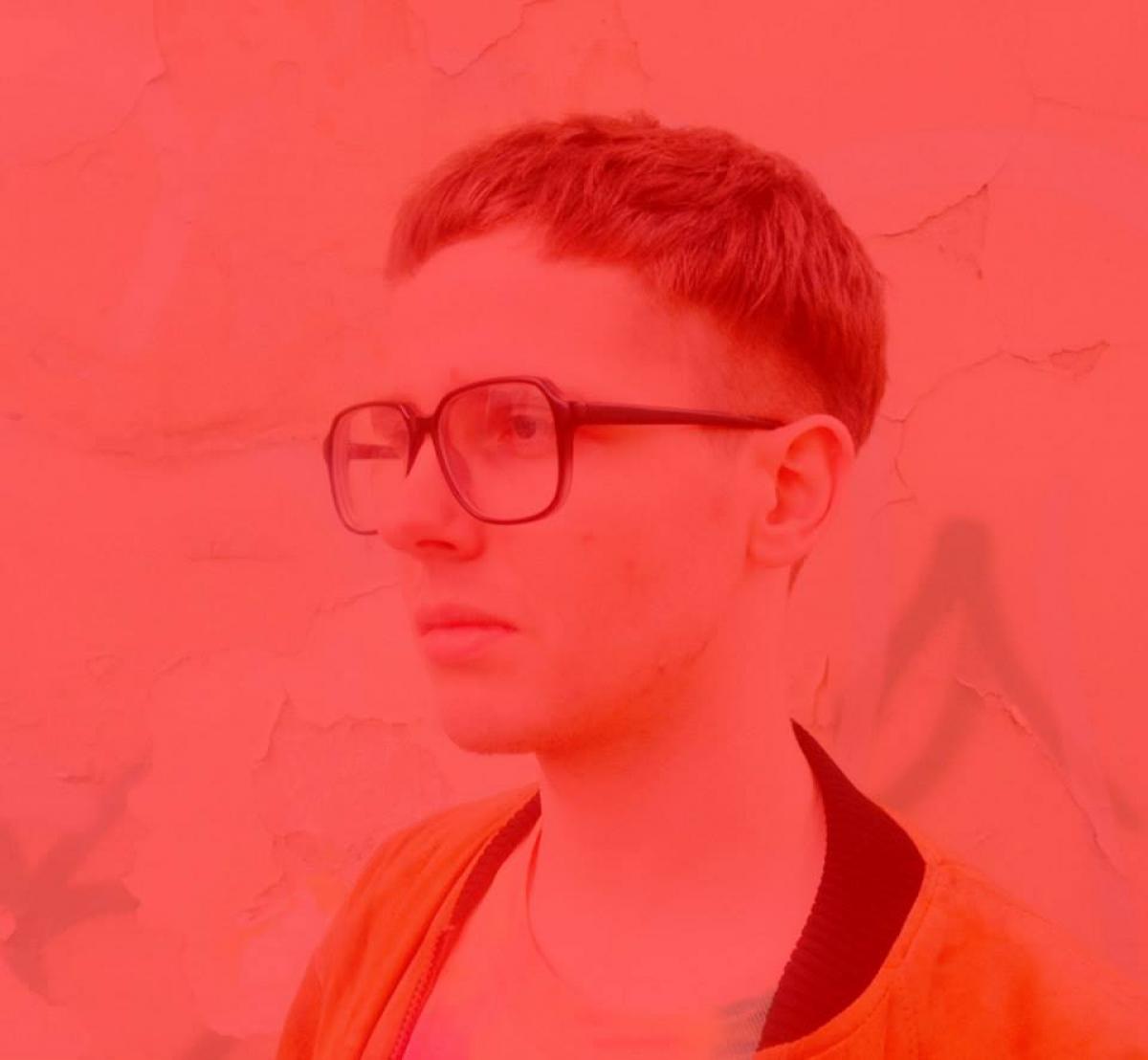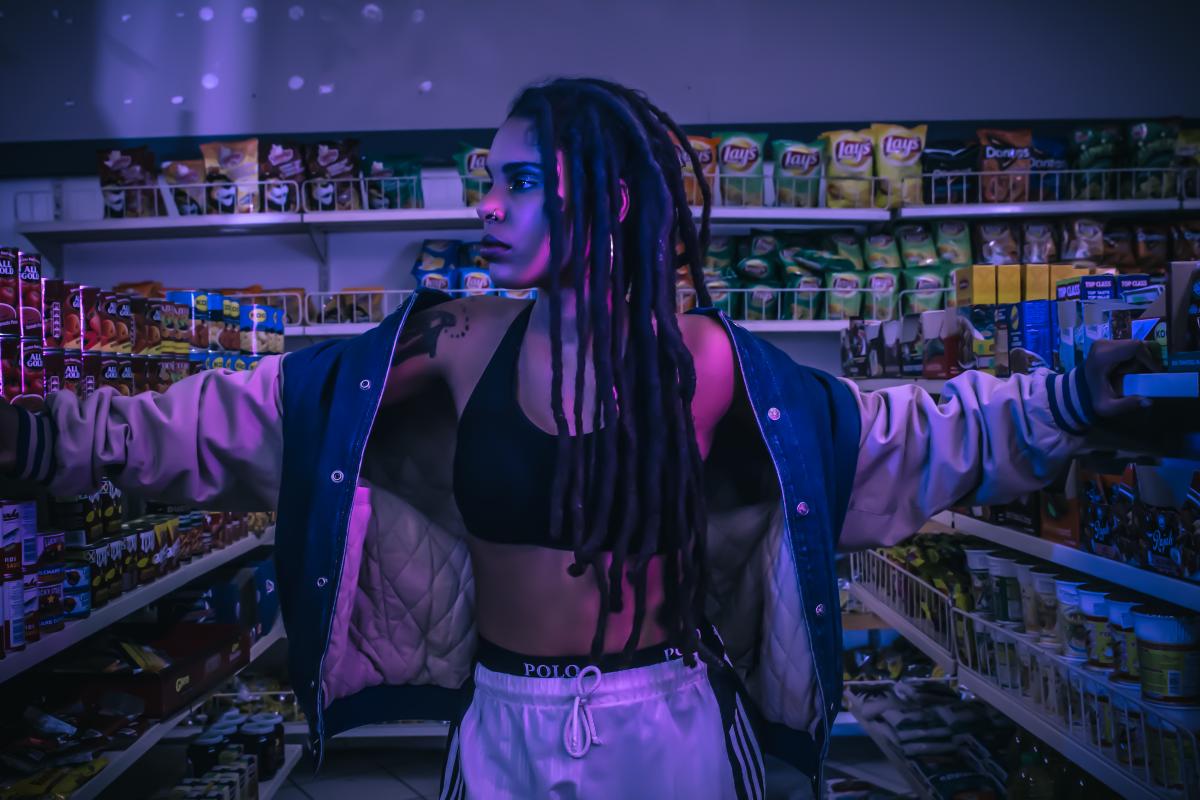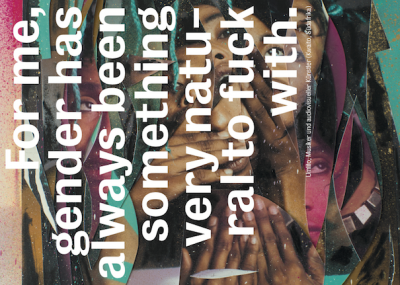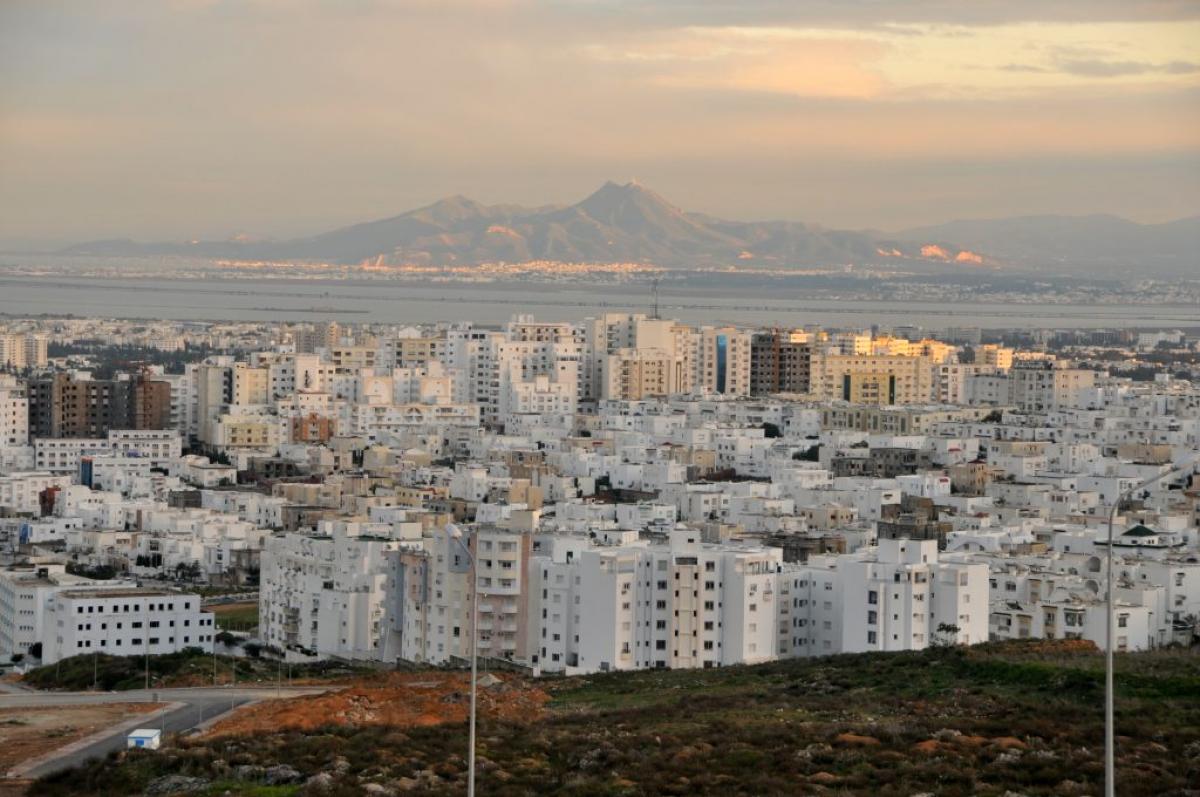
Tunisia: Musicians Confronted with Censorship and Repression
Of Tunisia’s entire artistic community, the musicians – and in particular urban rappers – have borne the brunt of the state’s censorship and repression. A wide legal arsenal has been used to drag musicians into court and throw them unceremoniously into gaol.
In Tunisia, there are two kinds of rappers. First, there are ones like El General and Mos Anif who captured broad international interest at the outset of the 2010-2011 overthrow of General Zinedine Ben Ali. At the time, their popularity resided in texts denouncing both corruption and social injustice. Yet they were couched in a profound respect for Tunisia’s traditional moral and religious values and were noted for their absence of verbal violence, swear words or insults. El General was briefly thrown in prison on 24 December 2010 and became something of a symbol of Ben Ali’s repressive policies on culture.
Then there are the underground rappers who go by the names of Weld El 15, Madou MC, Phénix, Klay BBJ, Bendir Man, Hamzaoui Med Amine and Spoiled Boy. Their rap is an abrasive yet festive description of their experiences of ongoing police violence, urban poverty and political corruption. These urban poets claim the ills of the Ben Ali era have stretched on unabated into the five years since Tunisia’s revolution. Their texts take off the gloves in describing police abuse and political connivance. The words are drawn from ghetto slang and are violent, torrid and hardcore. «The violence is rooted in direct insults of the police», writes Mohammed Fliti, a Tunisian doctoral student whose thesis is on the link between politics and rap in his homeland.
Fliti continues: «Rap has become an essential feature of Tunisia’s music scene. It is rap which best expresses the anger and sense of confusion amongst the youth… Nowadays, it centres on questions of social justice». Which could go some way to explaining the ambivalent positioning both of successive governments and the wider public to their music. Some of the country’s most notorious rappers – Weld El 15, Phénix, Kafon, Madou MC – have been arrested and sentenced to lengthy prison sentences, their music banned from radio and television. They were charged with crimes as diverse as plotting against Tunisia to consumption of illegal drugs. Some have been forced into exile in France or even joined the ranks of the Islamic State in Syria.
According to independent blogger Olfa Riahi, their popularity has not translated itself into support from the population in their struggle against the state. «They criticise not only the government but the extremely repressive laws in Tunisia on cannabis consumption», Riahi recently told Lilia Blaise of the Tunisian weeklyRéalité. «And this stance does not really seduce the wider general public». (See Daniel Brown: «The alternative voices: Artists in the Arab world»).
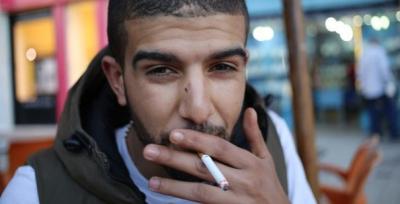
Pernicious censorship of the poor
Of all Tunisia’s artistic community, musicians, and in particular, urban rappers have borne the brunt of the state’s censorship and repression. A wide legal arsenal, particularly Article 121 of the Penal Code has been used to drag musicians into court and throw them unceremoniously into gaol. (See Daniel Brown: «Artistic freedom – Tunisia walks a narrow tightrope»).
Rappers are also targetted through abusive use of the anti-marijuana law 52 (ibid). But for percussion virtuoso Imed Alibi, there is a more pernicious form of censorship. «The cultural authorities of our country are dead-set against what you could call the ‹music of the poor›, as well as music from rural regions», he explains in the quiet and spacious cultural centre Dar al Finun which he helps to run in central Tunis. «We call it ‹mezwed›. This is popular music where women sing accapella, then are joined by the bendir frame drum, our own tabla tijaniya (ed. See www.dansedumaghreb.blogspot.fr) and the mezwed wind instrument which gives the music its name. But this popular style is frowned on by the Ministry of Culture where bureaucrats prefer to subsidise commercial garbage for the elite in cities like Hammamet, Sousse and Tunis».
The 37-year-old has played with a plethora of international stars ranging from Justin Adams to Zé Luis Nasciemento, Michel Marre and Hamid Bouchnak. But he is committed to breaking what he calls «a corrupt form of using public funds» in order to finance some of Tunisia’s most prestigious events and festivals. «The Carthage Festival sells tickets at a price equivalent to three days salary for an olive picker», he exclaims. «This elitism is creating tensions, it’s becoming urgent to address what is causing them. The youth are giving up hope, they’re marginalised, there’s no places to perform or see concerts in rural regions like Maknassy where the revolution began. Our culture has to be decentralised or it will starve».
Sentenced in absentia
The disillusionment has spread to the top names in hip-hop, seen as standard-bearers for the generation that emerged during the 2011 uprising. After repeated brushes with the law, top rapper Emino shocked the music community in March 2013 by joining the ranks of Islamic State in Syria. Whilst the likes of Weld El 15, real name Alaa Eddine Yacoubi, and his childhood friend Madou MC have exiled themselves to France. «What do you expect?» asks the rappers’ lawyer, the flamboyant Ghazi Mrabet.
«They have been charged with crimes ranging from plotting against the state and participating in a rebellion, to conspiracy to commit violence against public officials and verbally abusing civil servants (ed., in French: outrage à un fonctionnaire publique), in this case the police force. Some offences are punishable by seven years behind bars. Not to mention the most widely-used law against the youth of this country, possession of cannabis and its promotion through channels like their musical lyrics. The infamous Law 52».
This 23-year-old law condemned consumers and peddlers of cannabis to a year in prison, while Law 53 did not allow judges to consider attenuating circumstances. The latter was modified in May 2015 to allowing the judicial body to admit such circumstances. However, the recent incarceration of Klay BBJ for «possession and use» of cannabis underlines the relatively limited impact of the new legislation. (See: Tunisia: «Rapper Klay BBJ released from custody»).
Whilst serving an eight-month sentence under Law 52, Weld El composed Boulicia Kleb or The Police Are Dogs. «Every civil servant of (the Ministry of) the Interior is a corrupt shit», he raps. «He sits up for his generals, this dog». «Weld El went too far», admits Madou MC, who began the new underground rap movement with his childhood pal eleven years ago. Madou and three fellow-rappers spent six months in gaol in 2013 because Weld El dedicated a music clip of the Boulicia Kleb song to them. «Many policemen even helped him when he was hiding from the authorities. Look, my dad’s a cop, he actually understands what we rappers are trying to do. They’re not all dogs…»
We are sitting on the picturesque Avenue Bourguiba, central Tunis, just days before Madou leaves for France, a five-year work permit in his pocket. Nearby, a group of young hip-hoppers from the popular southern ghetto of Kabbaria are practising their art on the steps of the municipal theatre. Many of Tunisia’s most popular underground artists, including Madou, are from there. One of them breaks away to salute Madou and thank him.
«This is what gives me hope», the 26-year-old confides afterwards, «Here’s a posse (ed. a rap group and its followers) called KBBA, 12 rappers, a couple beatmakers and a raggamuffin guy. They’ll pick up where we left off. It’s tough for us, we live in what you call galère in French, something like hell, but there’s always hope».
We return to the Weld El affair. Madou is not bitter but admits that he can no longer work with his old friend. «Because he dedicated that clip to us, the judge was convinced we were all in it together. But I had nothing to do with it, none of us did. You know», he pursues, «I’m not a politician, I don’t use double-speak, I just say it the way it is. My rap is nothing new, just a reminder of the government’s promises to the youth. I also remind my generation that they can do things, they can save their lives. They just have to get off their asses».
Madou chuckles when I ask for details of his court case. «I wasn’t in the country when they tried me. I didn’t even know about it, I wasn’t invited to my own trial. I was in Morocco when friends called me up and said: ‹Hey, you’ve just been convicted to six months at the Mournagaya prison, in southeast Tunis.› Yeah, I was surprised. I hesitated a long time before finally handing myself in». He pauses before saying matter-of-factedly: «It’s not much fun to be cooped up 22 hours a day in one of Tunisia’s most notorious prisons. There were 40-50 of us in a cell made for ten…»
Like a ton of bricks
French Tunisian film-maker Hind Meddeb has been chronicling the surge in urban music since the Arab uprisings began. (See Victor Salama’s article «Tunisia and Egypt: Music Censorship After the Spring»). She is the daughter of one of Tunisia’s best-known philosophers, the recently-departed Abdelwahab Meddeb, and has modernised her father’s iconoclastic approach to Arab culture. After groundbreaking documentaries on the links between music and politics in Morocco, Lebanon and notably Egypt, (see, for example: Electro Chaabi), she turned her attention to her homeland. After four years of coverage, Meddeb is putting her finishing touches on Tunisia Clash, focussing on underground rappers like Madou MC who have been targetted by the police and successive administrations.
«There are obvious parallels between Egypt and Tunisia», the 37-year-old explains with characteristic intensity. «Young musicians suddenly enjoyed a huge amount of artistic freedom for a couple years and used it to compose songs on daily ghetto life in raw but humorous language. It never got played on radio or TV, but it was huge on social media. Then the authorities fell on them like a ton of bricks.»
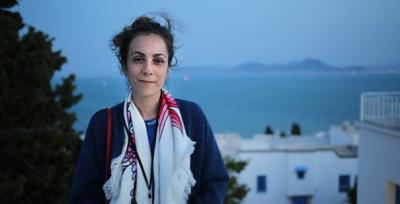
Hind is no distant observer. During Weld El’s trial in 2013 she reacted to the rapper’s sentencing by standing up in court and screaming «Shitty country! Now I really understand what Weld said in his songs!» She was expelled from the court, arrested and later given a four-month sentence for outrage against a magistrate. Thanks to a personal intervention by French president François Hollande, this was suspended, but it has marked the young film-maker. «The police were really scary. They used tear gas against us, threw me into a crowded cell, then intimidated me into signing a document I didn’t really have time to read. It was only much later I found out I had been accused of insulting and physically attacking the police. It was ludicrous».
Meddeb’s eyes flash angrily. The case continues to prey on her mind, but she says it’s nothing next to the pressures on the country’s youth. «They feel they have got nothing out of this revolution. They’re censored, thrown in gaol on trumped-up charges and can find nowhere to play. I try to show this in Tunisia Clash. It’s a fly-on-the-wall sort of film, going into rural Tunisia as well as the poorer neighbourhoods of the cities. And you really see that these musicians are echo chambers for the aspirations of the younger generations, a catharsis».
Rappers as citizens?
Mourid Sakli begs to differ. Whilst the former minister of culture in the 2014-2015 government deplores the ‹excesses› of the justice system and its use of Law 52 against the rappers, he brushes off Meddeb’s accusations of censorship and repression. «The military and police are doing an extraordinary job in Tunisia», he said in an exchange at the Bardo museum, site of the murderous rampage by gunmen on 18 March 2015. «They are under constant pressure. And when you have a rapper who goes on stage and starts insulting them like Weld El 15 did in a concert in Hammamett, they obviously get a little defensive. But all these problems have been quickly resolved, it’s over».
Sakli is also a specialist in what he calls neo-traditional Tunisian music and is quick to defend the rappers’ contribution to the revolution. «They accompanied the uprising more than any other musical community. They did this in two ways: directly through their lyrical denunciations of the Ben Ali’s politics. And indirectly by mixing their music with films and video clips that showed incredible imagination. And you always feel that very Tunisian characteristic, humour. In the most important moments of our history that’s always been there».
«These young revolutionary artists have to work to become citizens», says Sonia M’Barek emphatically. She is one of Tunisia’s best-known malouf singers. Since 2014, Mbarek has taken up the heavy mantle of directing the country’s most prestigious music festival in Carthage, the FIC (Festival International de Carthage). «We’re living a delicate moment, with Tunisians growing increasingly disillusioned about the benefits of this revolution. It’s driving them towards a radicalisation and this is where musicians and other artists can be useful: we can build bridges between different classes and visions. So that people can be more tolerant with each other and understand where they’re coming from». Mbarek acknowledges the impatience expressed by rappers but cautions on the effects their words can have on the disenfranchised youth. «Rap is a direct and hard way of communicating, a bit too raw for my taste. Other music styles use more metaphoric and poetic ways of expressing change. Whilst I’m against limiting freedom of expression, there’s a question of respecting your neighbour. That freedom stops where the freedom of the other begins».
What the singer deplores with a degree of passion is the precipitation of Tunisia’s revolution. «Our country needed a cultural revolution before a political one». Mbarek clenches her fist with the word ‹before›, pauses, sips her coffee in the La Marsa cafe we meet in, then continues. «We’re still waiting for those new ideas, and education has really dipped in the past decade. There’s no new ideology accompanying the political and economic transformations. It makes young people restless, they have no patience to let it form naturally. So, there’s a real malaise, they’re becoming desperate, have stopped voting, and are joining the ranks of extremists. Or they’re expressing this unease through rap songs».
Mbarek hopes her festival will help transmit messages of tolerance to counter the obscurantist ideology reaching out from internet networks. «We’re going to take the festival into the forgotten parts of Tunisia next year autumn (ed. The festival usually takes place in July-August). It will be multi-disciplinary and political, with a small ‹p›. And the hip-hop culture, in all its diversity, has a huge role to play in this. It’s vital: if these divisions deepen, upheavals will almost come naturally and could wash away all the gains we’ve won in the past four years».
This article was first published on the website of Freemuse, an independent international membership organisation advocating and defending freedom of expression for musicians and composers worldwide.
Biography
Published on January 11, 2017
Last updated on April 10, 2024
Topics
Why New Yorks’ underground doesn’t give a fuck about Trump or why satirical rap in Pakistan can be life threatening.
From political music in the GDR, the trouble of punk musicians in China and the dangerous life of kurdish folk singers in Turkey.
From classism in techno clubs to clashing ideals of masculinity in Brazilian «bate bola».
About Tunisian rappers risking their life to criticize politics and musicians affirming 21st century misery in order to push it into its dissolution.
